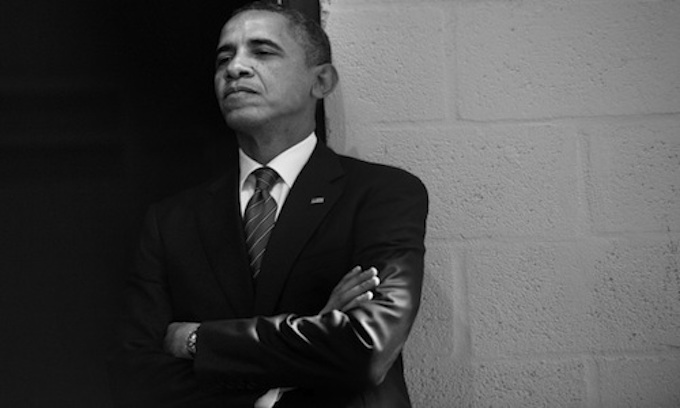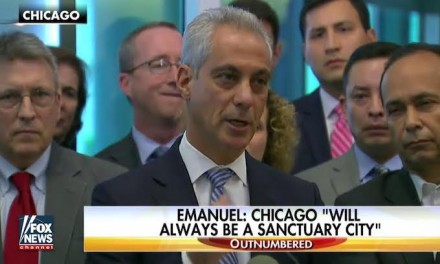The criminalization of government agencies by the Obama administration was far more extensive than previously realized. The Uranium One deal is a prime example of how key government agencies have been criminalized.
To understand the compromising elements of the Uranium One deal, one must go back to the first George W. Bush administration when U.S. nuclear companies were permitted to purchase uranium from Russia’s disassembled nuclear warheads. Tenex, a subsidiary of Rosatom, was a Russian-controlled company responsible for the sales and transportation of the uranium to the United States. Tenex (Rosatom) also had established an American company, Tenam USA, based in Bethesda, Md. The Russian official in charge of Tenam USA was Vadim Mikerin.
Mr. Mikerin, a very enterprising individual, had total control over Rosatom-Tenam’s contracts with the U.S. uranium companies. Consequently, he was able to force the companies to pay inflated prices for the recovered uranium. The inflated proceeds were then laundered through various shell companies and overseas secret bank accounts. The American companies that participated in this criminal extortion scheme not only compromised their integrity but made themselves subject to Russian blackmail, potentially compromising our national security.
In May 2008, the Bush administration entered into a new cooperative nuclear energy agreement with Russia. However, this was quickly terminated when Russia invaded Georgia. It still occupies two Georgian provinces, Abkhazia and South Ossetia. Nonetheless, in 2009, the Obama administration, led by Secretary of State Hillary Clinton, renewed cooperation and commerce on nuclear energy with Russia.
To help Vladimir Putin expand Russia’s nuclear energy objective to become the dominant player throughout the world, Mr. Mikerin hired an American lobbyist in 2009. This lobbyist became uncomfortable with the extortion scheme and became an FBI informant under none other than FBI Director Robert Mueller. Eric Holder was U.S. attorney general. The FBI investigation was centered in Maryland where the U.S. attorney appointed by Mr. Obama was Rod Rosenstein, currently President Trump’s deputy attorney general. Mr. Rosenstein is the one who appointed Robert Mueller as special counsel to investigate Russian collusion in our 2016 presidential election.
By early 2010 the FBI had sufficient information to prove the case of racketeering and money laundering against Mr. Mikerin. Further, the FBI was also alerted to the fact that Russian nuclear officials were trying to establish a relationship with the Clintons.
Shortly after Mrs. Clinton’s trip to Russia in March 2010, a Russian-controlled entity, the Renaissance Bank, offered former President Bill Clinton $500,000 for a single speech. During the George W. Bush administration, Mr. Clinton separately helped his friend Frank Giustra, a Canadian billionaire, and his company, UR-Asia Energy, obtain key uranium mining rights in Kazakhstan. With this deal, Giustra’s UR-Asia Energy was then able to obtain Uranium One, a South African company. This was a $3.5 billion windfall for Mr. Giustra. According to Andrew McCarthy in a National Review article, Uranium One already controlled 20 percent of U.S. uranium assets. How and when the transfer of this key national security material took place remains an open question.
In the meantime, Mr. Putin also wanted Kazakhstan’s uranium. A crisis was averted when a deal was struck between Hillary Clinton’s State Department, in an emergency meeting with the Kazakh regime, which would permit Russia’s energy giant Rosatom to purchase 17 percent of Uranium One. As a result, the threat to Clinton friend Frank Giustra’s holdings in Kazakhstan and Uranium One were protected. Mr. Giustra and his board of directors “generously” contributed $145 million to the Clinton Foundation.
Mr. Putin’s ultimate objective was to have complete control of Uranium One’s assets. However, since Uranium One already controlled 20 percent of American’s uranium assets, Russia’s Rosatom would need to get the approval of the Committee on Foreign Investment in the United States (CFIUS). It’s interesting that the staff chairman of CFIUS was Treasury’s Amien Nabi Mir, an Obama appointee with connections to Pakistan’s intelligence service and the Islamic Society of North America.
Clearly, there was strong congressional opposition to Russia’s acquisition of America’s strategic uranium deposits. Sen. John Barrasso, Wyoming Republican, objected to Russia’s control of uranium assets in his state. There is no question that Attorney General Holder and FBI Director Mueller had sufficient information to bring racketeering fraud and money laundering charges against Mr. Putin’s controlled Rosatom agent, Mr. Mikerin, in 2010, which would have killed the deal. However, that was not going to be allowed to happen. Consequently, in October 2010, CFIUS gave the approval of Rosatom’s acquisition of Uranium One, even though we do not produce enough uranium to meet our own requirements. Unbelievable.
Why the investigation was allowed to run for another four years is unclear. However, it continued through the 2012 presidential election cycle and up to the point in 2014 when Mrs. Clinton was making plans for her presidential run. According to The Hill, the FBI and the Justice Department then quietly negotiated a “minor” guilty plea that was announced just before the 2014 Labor Day holiday. How convenient.
Further, according to The Hill’s report of the Mikerin plea deal, Mr. Rosenstein’s office, along with the Justice Department’s fraud attorney, conveniently failed to mention in the plea deal that there was fraud and extortion in 2009 and 2010, which occurred before CFIUS’ approval of Rosatom’s acquisition of Uranium One.
Separately, a gag order had been placed on the FBI informant by the Obama Justice Department, which recently has been lifted. The entire criminal process of the Uranium One deal reaches the level of treason and must be fully investigated.
• James A. Lyons, a retired U.S. Navy admiral, was commander-in-chief of the U.S. Pacific Fleet and senior U.S. military representative to the United Nations.
© Copyright (c) 2017 News World Communications, Inc.
—-
This content is published through a licensing agreement with Acquire Media using its NewsEdge technology.




















Recent Comments